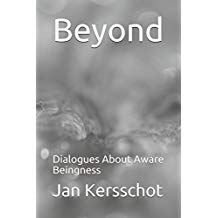- If metaphysical entities cannot be verified to exist, how can we say anything meaningful about them?
My position is that everything is metaphysical – cf. Is everything metaphysical? www.quora.com/search?q=everything+is+metaphysical
(Originally answered in Quora)
So, everything that exists is metaphysical, including language and thought: sticks and stones, trees, all bodies, etc.; IOW there is nothing that is ‘material’ or physical per se (which is a pure abstraction, or a metaphysical theory*). Language divides ‘what is’, the whole of existence, into parcels having particular meanings which, having specific referents, are not purely verbal or conceptual (i.e. language constructions), but are based on particular experiences. The experiences are either sensorial, purely mental or intellectual (thought, emotions), or intuitive, transcendental or spiritual, that is, transcending the mind; these last being metaphysical properly so called, for example pondering about, contemplating the nature of the universe, of matter, time, space, the nature of life, of origins or causality, ‘subject-and-object’, ‘value’, consciousness, mind, the meaning** of ‘soul’ or individuality (plurality). Pondering about the nature of experience and what may be called nonduality is intellectual as well as metaphysical or spiritual – this is not a neat distinction; the scope is what counts here.
*Metaphysical theories, being the product of thought (and language), are metaphysical themselves, it goes without saying. Their import or thrust “in the scheme of things” is something else.
**‘Meaning’ (a word or concept – or question mark in the mind ), merges here with its referent, ‘the thing itself’, by an act of intuition or comprehension.
- Is Advaita a trap?
Yes, it is a trap for individual mind – that is, the mind that considers itself a separate and independent individual, a doer and enjoyer. After usually many years of seriously studying Advaita (emphasis on ‘seriously’) with full force and dedication, it may dawn on that mind that the belief described above was actually a trap and a lie. Realizing this, by a stroke of magic as it were (so one might think without straying much from the truth), BINGO! you are free… free from the mind’s doubts, fears, hopes, projections and tribulations. You then realize that only universal consciousness (a.k.a awareness) is true, and that that is what You are —the quotidian mind has disappeared, become no-mind, that is, pure unalloyed consciousness.
https://www.quora.com/Is-Advaita-a-trap/answer/Alberto-Mart%C3%ADn-2


